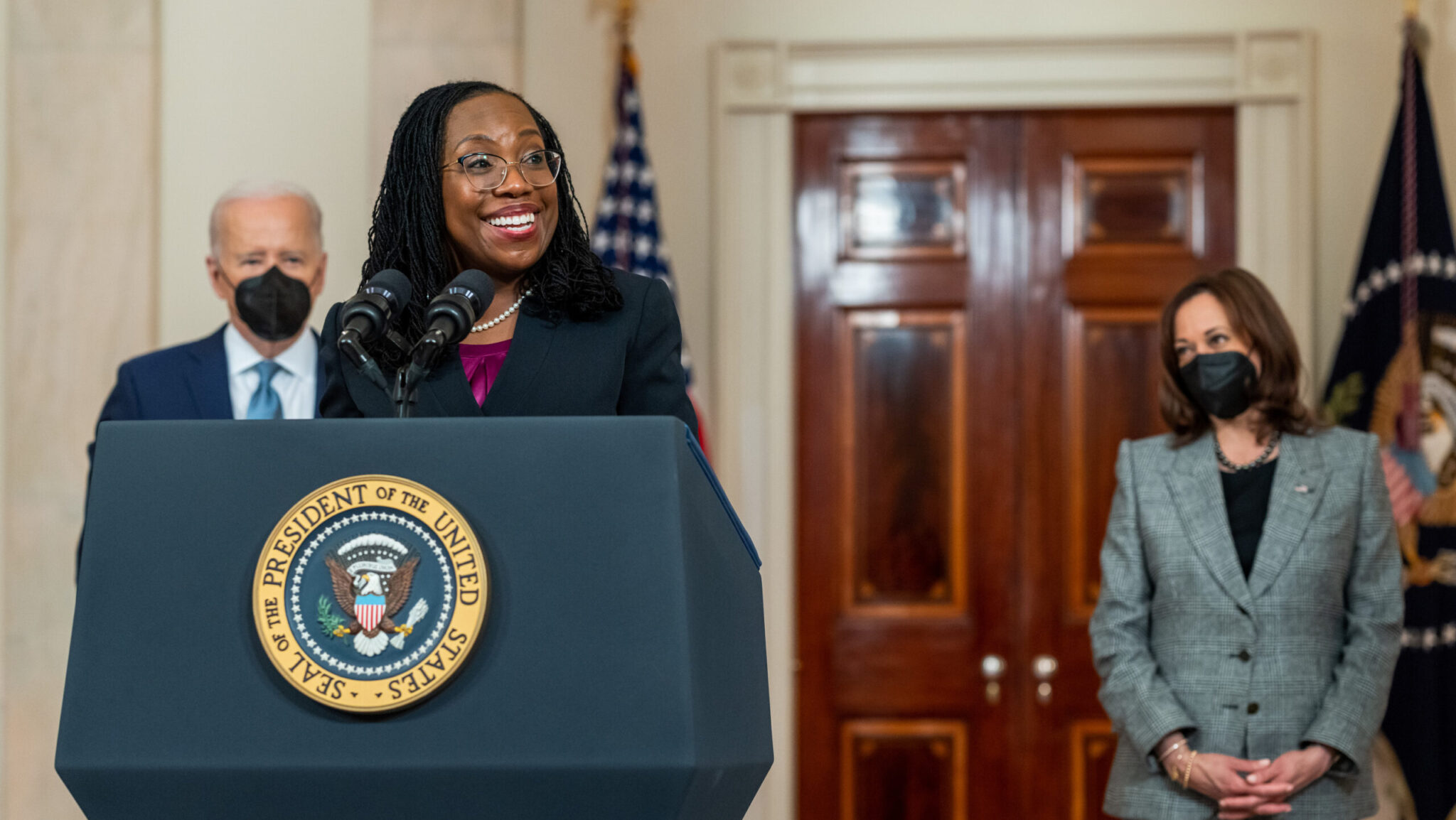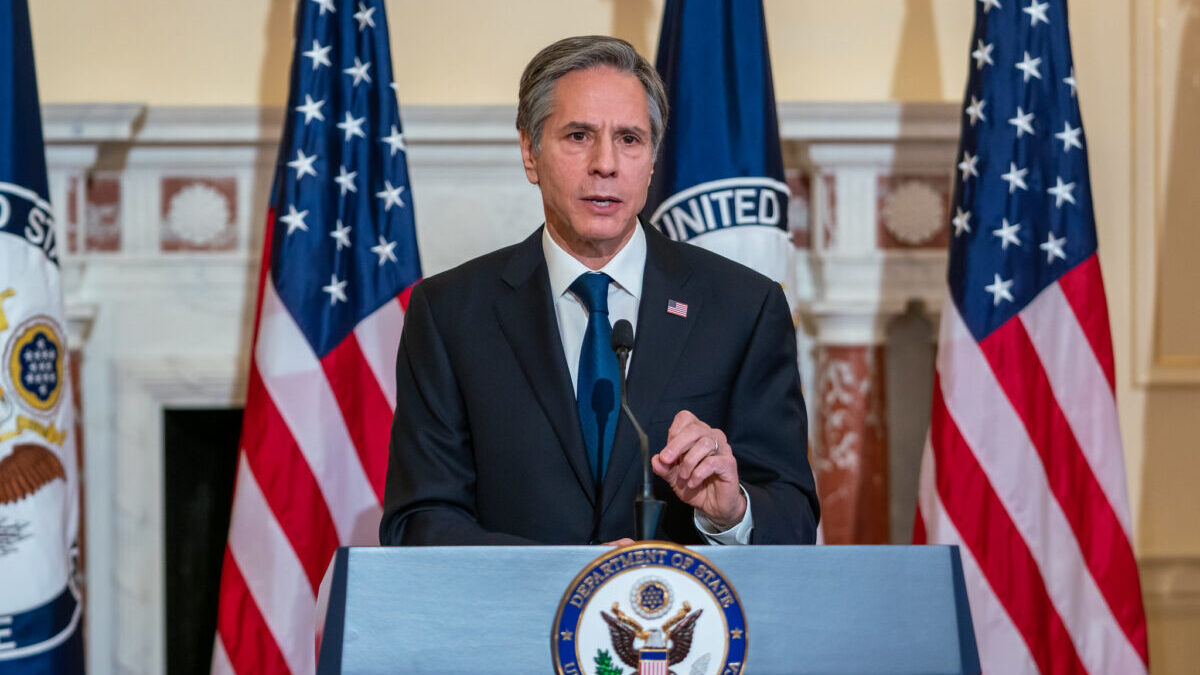Months of negative coverage of the Supreme Court have left voters skeptical. A plurality doesn’t have confidence that the court will issue a fair ruling in former President Donald Trump‘s petition for immunity.
But it's bigger than Trump.
It's about our constitutional right to free speech.
In a Politico/Ipsos poll released on Monday, only 24% of adults said they trust the Supreme Court to issue a fair and nonpartisan ruling on the matter compared to 46% who said they do not trust the court. Of those surveyed, 29% said they did not know when asked if they trust the high court.
Be informed, not misled.
The Politico/Ipsos poll is very interesting and informative.
RE: Does the federal government have constitutional rights?
When can the federal government use its coercive regulatory powers to silence ideas it doesn’t like on social media?
A key exchange came between Justice Samuel Alito and Deputy Solicitor General Brian Fletcher when Alito asked Fletcher if print media outlets such as the New York Times or Associated Press would ever be subject to the threats, harassment, and “constant pestering” that the Biden administration applied to social media companies Twitter, Facebook, and Google.
When can the federal government use its coercive regulatory powers to silence ideas it doesn’t like on social media? That was the question presented to the Supreme Court on Monday, and while a majority seems ready to protect the First Amendment, too many justices seemed ready to give the government the benefit of the doubt.
The Washington Examiner says, "That is not how the First Amendment is supposed to work. The federal government does not have a First Amendment right to anything. The same is true with state and local governments. The First Amendment is a protection for people, not governments. If the Biden administration wants to cajole people to get vaccinated, it is free to do so from the bully pulpit. What it is not allowed to do is use government power or threats to censor people who disagree with its COVID policies."
That is what the Biden administration did, not just on vaccines but on other subjects, such as posts about the virus originating in China or questioning Biden's policies on racial justice, Afghanistan, or Ukraine.
Free speech on trial at the Supreme Court.
The Constitution limits the government. But leftists want unlimited government — which is why they hate the Constitution.
During Monday’s oral arguments for Murthy v. Missouri, formerly known as Biden v. Missouri, Jackson claimed to oppose any ruling in favor of Americans’ constitutional right to free speech if it limited the government’s ability to censor that speech via Big Tech.
“My biggest concern is that your view has the First Amendment hamstringing the government in significant ways in the most important time periods,” Jackson told Louisiana Solicitor General Benjamin Aguiñaga.
Aguiñaga clarified that he wasn’t arguing for a complete ban on all interaction between the government and social media companies but for that relationship to stay within constitutional bounds.
There is no lack of proof that federal agencies, including the Department of Health and Human Services, National Institute of Allergy and Infectious Diseases, Centers for Disease Control and Prevention, Census Bureau, Department of Homeland Security, Department of State, FBI, Department of Justice, and the White House demanded Big Tech companies like Twitter (now X), Facebook, and YouTube silence Americans with government-disfavored opinions on Covid-19, elections, and the Biden regime.
In fact, Judge Terry Doughty, chief judge of the U.S. District Court for the Western District of Louisiana, called such government-directed internet censorship “the most massive attack against free speech in United States’ history” in his 155-page memorandum ruling issued on July 4 last year.
Relativism fosters mistrust.
In a different exchange, Jackson claimed that a “once-in-a-lifetime pandemic” or any other such declarations of emergency should allow the government to escape its constitutional limits. Declarations of emergency are historically common as a means of government power grabs.
Escape its constitutional limits?
“I’m interested in your view that the context doesn’t change the First Amendment principles,” Jackson said. “I understood our First Amendment jurisprudence to require heightened scrutiny of government restrictions of speech, but not necessarily a total prohibition when you’re talking about a compelling interest of the government to ensure, for example, that the public has accurate information in the context of a once-in-a-lifetime pandemic.”
"Accurate information."
Who decides what is accurate?
No wonder only 26% of Americans trust the Supreme Court on any issue.
Jaret Kanarek has written in "Critiquing Cultural Relativism" that cultural relativism is the ever-popular theory claiming that "any set of customs and institutions, or way of life, is as valid as any other." In its appeal to tolerance-the seemingly incontrovertible "virtue" of the modern era- it has gained wide appeal amongst myriad disciplines, most notably in the social sciences. However, the theory is destructive in both theory and practice. In theory, cultural relativism emphatically denies reason and objective reality. In practice, it sanctions the worst manifestations of violence and oppression.
"To this extent, it is fully destructive in theory, as it undermines not only itself but also all knowledge, including but not limited to, scientific methods and the fundamental laws of nature. Cultural relativism is therefore a destructive force in theory and is thus bound to be destructive in practice."
Takeaway
According to relativism, there is no absolute right or wrong, and no situation will ever be black or white. Instead, each individual sculpts their own personal vision of truth and consents to the idea that everyone’s truth is simultaneously correct, at least for themselves.
Relativists pretend that the only alternative to relativism is authoritarianism and fundamentalism. If you want to talk about truth—or God forbid, about Truth—they immediately attack you as patriarchal, like those Dead White Males [Founding Fathers] who dared declare anything to be concrete and specific and historical. They will probably suggest that you have violent and oppressive tendencies. They’re sincerely threatened by the idea of truth.
John 8:32 says, "And ye shall know the truth, and the truth shall make you free."
Jesus Christ is the Truth.
True freedom is found only in God's Word. Heaven and Earth will pass away...but God's Word will never pass away.
Be Informed. Be Free. Be Discerning. Be Vigilant. Be Prayerful.



